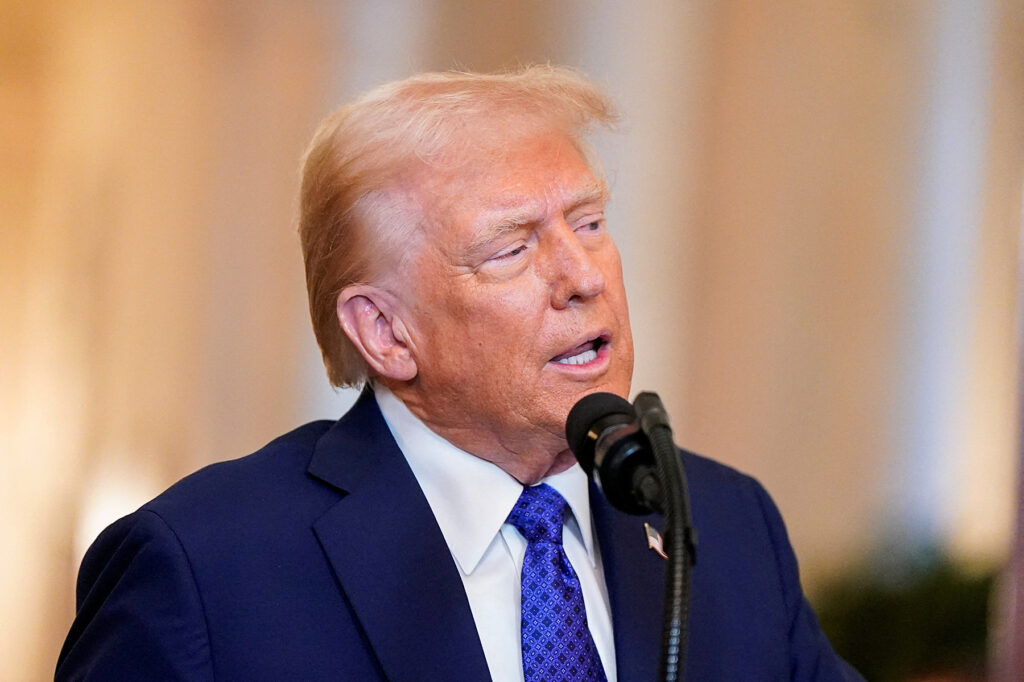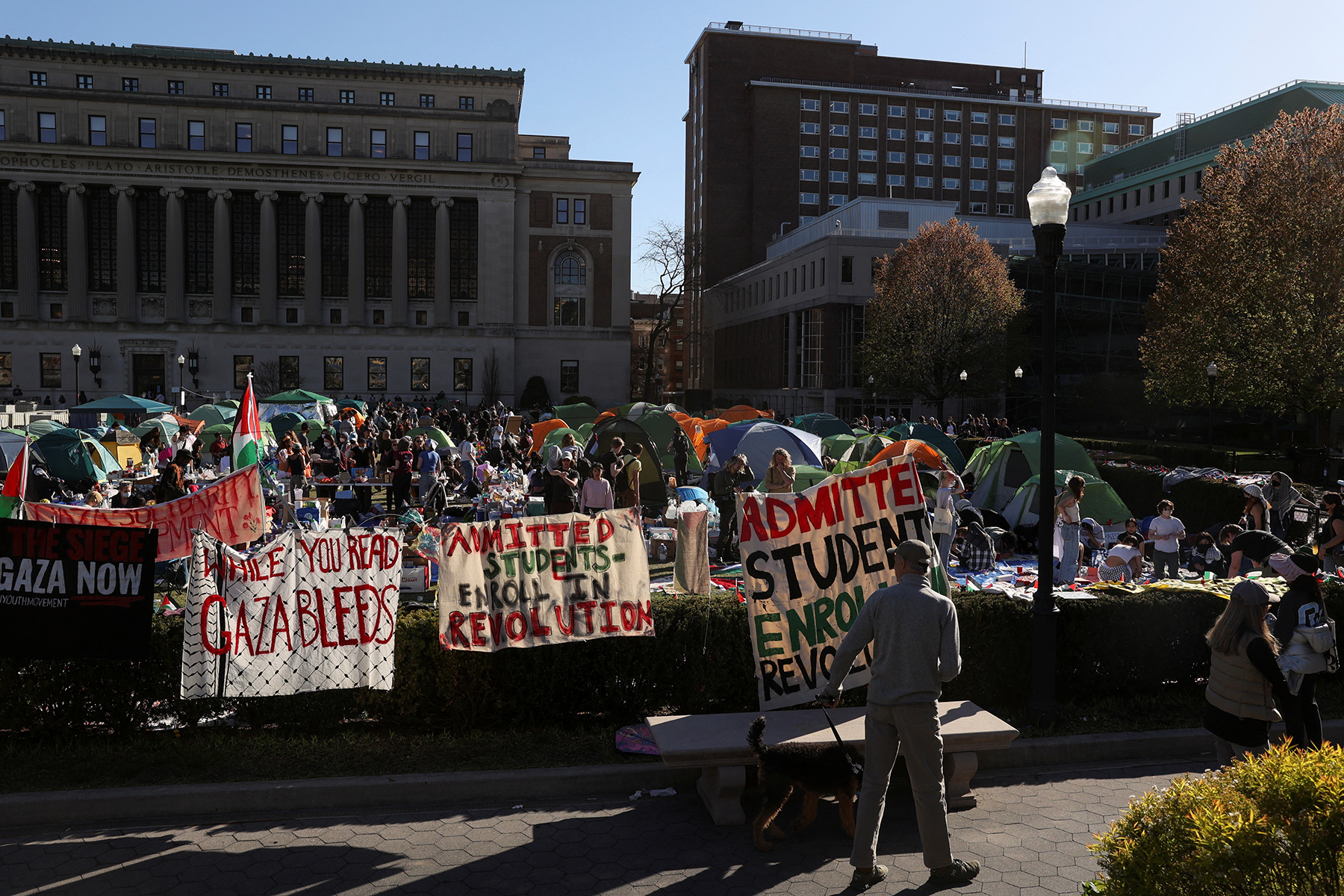Shortly after his inauguration, President Donald Trump signed an executive order aimed at combating anti-semitism, particularly on college campuses, and in an accompanied White House fact sheet, threatened to “deport Hamas sympathizers and revoke student visas.”
“To all the resident aliens who joined in the pro-jihadist protests, we put you on notice: come 2025, we will find you, and we will deport you,” the fact sheet stated, quoting the president. “I will also quickly cancel the student visas of all Hamas sympathizers on college campuses, which have been infested with radicalism like never before.”
The order raises First Amendment concerns, and was called “unconstitutional” by the Knight First Amendment Institute at Columbia University.
In 2023, the Institute published two U.S. Immigration and Customs Enforcement (ICE) memos obtained through the Freedom of Information Act. According to the Institute’s press release, the memos “provide insight into how the First Amendment would limit the Trump administration’s efforts to revoke student visas and remove foreign nationals who express support for Hamas or criticize Israel’s response to Hamas’ attack.”
The executive order references a section of the Immigration and Nationality Act, which describes a foreign national as someone who is “ineligible” for a visa or “inadmissible” to the U.S. if they were to “endorse or espouse terrorist activity or persuade others to endorse or espouse terrorist activity or support a terrorist organization.” The U.S. Department of State has designated Hamas as a terrorist organization. The order directs the Secretary of State, the Secretary of Education, and the Secretary of Homeland Security to recommend ways to “familiarize” colleges and universities with the “grounds for inadmissibility” under the law so they can “monitor for and report” any relevant actions taken by non-citizen students and staff for future investigations and removal.
First Amendment Watch spoke with Carrie DeCell, senior staff attorney and legislative advisor at the Knight Institute, about President Trump’s executive order. DeCell outlined the First Amendment implications of the order, discussed the “endorse” and “espouse” clause of the Immigration and Nationality Act, and explained how memos from ICE attorneys in Trump’s first administration concluded the First Amendment would likely bar the action threatened in the executive order.
Editor’s note: This interview has been edited and condensed for length and clarity.
FAW: What are the First Amendment implications of this executive order?
DeCell: I’ll start by saying that there’s a lot in this executive order that likely implicates the First Amendment, and a lot of it is focused more domestically than kind of at the border. I have been more focused on the provision that calls attention to grounds for inadmissibility and asks the Secretaries of State, Education and Homeland Security to familiarize institutions of higher education with those grounds so that the institutions may monitor for – and report activities by – students and staff relevant to those grounds, so that those reports can then lead to removal if warranted. So the grounds for inadmissibility that the executive order points to include one particular ground that has raised First Amendment concerns for years, I think, and that’s the ground for inadmissibility on the basis of endorsing or espousing terrorist activity or supporting terrorist groups or terrorist organizations. I think the clear intent behind this executive order, as evidenced by the fact sheet that Trump issued in connection with it, is to really threaten students who have engaged in pro-Palestinian protests with removal from this country, so students who are here on student visas. That is having a dramatic chilling effect on student speech in this country. With the caveat that there’s a lot in this executive order that calls for the heads of all other agencies to recommend action to combat anti-semitism — and the Trump administration’s understanding of that word — the First Amendment concerns that I’ve been more focused on recently are the ones that relate to the threat of deportation facing students here on student visas.
FAW: According to a White House fact sheet about the executive order, Trump promises to “quickly cancel the student visas of all Hamas sympathizers on college campuses, which have been infested with radicalism like never before.” Can students on visas be expelled from the country if they engaged in protected speech? Is this something a sitting president has the power to do?
DeCell: I would say not necessarily constitutionally, which doesn’t mean that he’s not going to try to do that. I think one of the more kind of interesting pieces of this puzzle is that during the first Trump administration, ICE lawyers, apparently working with a group of lawyers across different entities within the administration, very squarely addressed the question of whether or not the government could remove people from this country based on the fact that they had, in the government’s view, endorsed or espoused terrorist activity consistent with the First Amendment, and they examined a lot of the relevant case law in that memo. There’s a lot baked into this memo, but basically they’re addressing the question of whether or not you can apply the “endorse” or “espouse” provision to people who are already here in the country on valid visas, consistent with the First Amendment, and they concluded that it might very well be unconstitutional to apply the “endorse” or “espouse” provision to remove people from the country based purely on any kind of abstract sympathy or expression of sympathy with terrorists and organizations, but that the government would be on safer grounds if it’s invoking that provision to remove people from the country based on endorsing or espousing terrorist activity in such a way that it actually threatens the national security of the United States. And so there’s a big gap from what I see between the threats that President Trump is making in this fact sheet in connection with the executive order, and the grounds on which his own ICE attorney from his first administration thought he might be able to remove people from the country. We received these memos through a FOIA request that we submitted in August of 2017 for records relating to the first Trump administration’s call for extreme vetting of noncitizens. And it’s relatively clear from the records we got that there was this kind of working group of lawyers within the administration, and that included lawyers within the Office of Legal Counsel. And so we have indication that this memo was reviewed and revised by OLC. And went through relatively high levels of legal review within the administration during the first term.


